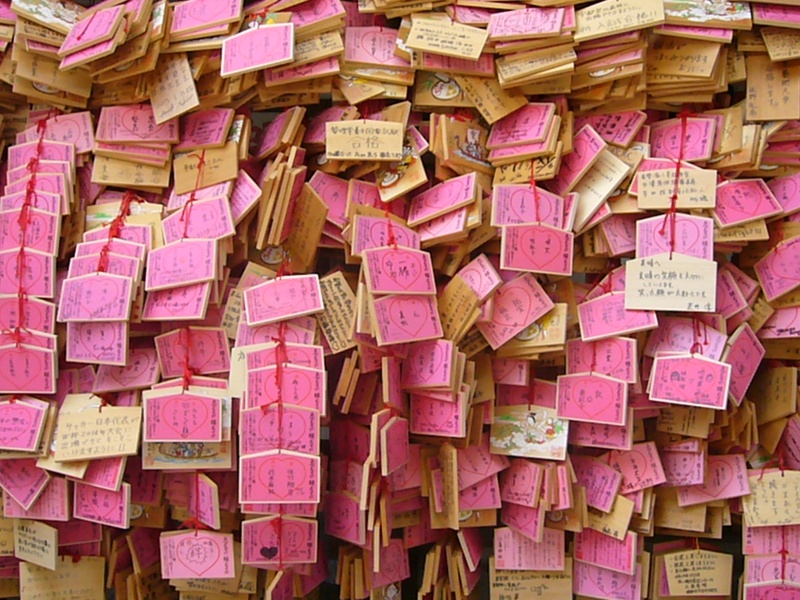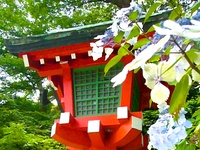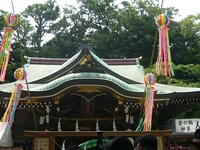ENOSHIMA, Japan—How odd to find myself standing on the other side of the ocean that I had swam in all my childhood. Yet there I was, together with three other American students, making my way towards Enoshima, an almost-island stuck out into the Pacific and connected to the mainland of Japan by a defiantly narrow spit of sand, far too small to accommodate the foot traffic that Enoshima receives. The breeze off the water makes the area a popular place of refuge from the stifling summer heat. On the weekends, hundreds of people from Tokyo, ourselves included, flock to the area. We found the pedestrian bridge thronged with fellow tourists. Here, as elsewhere in Japan, the traditional brushes shoulders with the modern -- the edges of the thoroughfare were lined with people selling paintings, calligraphy, and Jet Ski rides.
Tiny Enoshima is hilly and thickly forested, and a village is built up the side of a slope, its main road snaking upward towards the shrine that crowns the island. Dominating the skyline was a huge vermilion torii, the gate which marks the entrance to Shinto shrines and divides the sacred world from the profane. We climbed upward towards the holy site, but here too the road was packed with day-trippers. Numerous barbecue stalls made the air thick with the smell of smoke and frying squid and sent out punishing blasts of heat whenever there was a flare-up. The owners of the street’s many tiny shops leaned out of their doorways, enticing passersby to come in with competing calls of “Irasshaimase!” or “ Welcome!” Their wares often spilled out of the confines of their shops and onto the sidewalk. We jostled past racks of kimono and paper fan displays on our way up the hill.
But when we reached the top, the heat and bustle of below seemed far more distant than the few steps it took to pass under the torii gate’s arch. In stark contrast with the densely crowded streets and shops, the buildings of the temple complex were scattered throughout the woods, and as we walked through the dappled shade, free at last from the throng of people, I felt what is so elusive in a city of over ten million: peace.
Read more in Opinion
(Zambian) Wedding Crashers
















